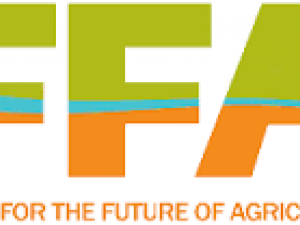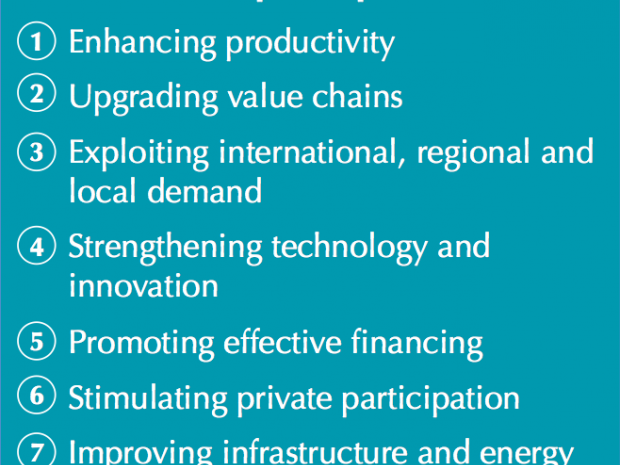Sustainable agribusiness is key for the future of agriculture
Discussion details

The post-2015 agenda and the Sustainable Development Goals (SDGs) were the starting point of this year’s Forum for the Future of Agriculture (FFA).
The debate was animated by top speakers and high level leaders such as Janez Potočnik, Phil Hogan, Amina Mohammed, Arun Gandhi, Karmenu Vella, Jeremy Rifkin, Anne Krueger and Mairead McGuinness. The Forum touched upon a number of hot topics related to sustainable agriculture, ranging from food security and environment to innovation and trade.
UNIDO participated in Forum, to advocate for the support to the agribusiness sector in developing countries. Moreover, it works closely with the European Commission to develop agribusiness in Africa.
So what are some of the big ideas that emerged from the Forum?
First of all, a number of speakers recognized that climate change well be one of the biggest threats to food security in the future. According to Amina Mohammed, Special Adviser of the UN on Post-2015 Development Planning: "This is the first generation able to eradicate poverty, but the last to do something meaningful about Climate Change".
Also for Jeremy Rifkin climate change is "the big elephant in the room". According to him, it is fundamental to join the 3rd Industrial Revolution Platform and take advantage of the opportunities arising from the Internet of Things. Rifkin argues that "Europe should switch from being the poster child for world warming to a poster child for sustainable food", and this will be achieved only if we: 1) switch from a chemical to an organic type of agriculture, 2) introduce energetically self-sustaining farms, and 3) change our diets, namely by reducing meat consumption.
Thirdly, whether due to an increase in R&I, an investment in new technologies or a change into circular economy,European and non-European countries need to increase their competitiveness and productivity. John Clark,Director of International Affairs at DG Agriculture and Rural Development (European Commission) is convinced that the future market for agriculture is going to be outside Europe, most likely in Africa.
UNIDO firmly supports sustainable agriculture to fight against climate change through the use of renewable energy, biofuel and hydropower in the agro-industry sector.
The development of agribusiness is crucial in order to achieve the SDGs. Of particular concern in the context of poverty eradication and ending global hunger are respectively Goal 1 (“End poverty in all its forms everywhere”) and Goal 2 (“End hunger, achieve food security, and improved nutrition and promote sustainable agriculture”).
In the last years UNIDO has been working on understanding the challenges and the opportunities that agribusiness development in Africa can bring. In its report Africa’s agribusiness for prosperity, UNIDO identifies 7 development pillars to assure that the potential of agribusiness in Africa can be fully achieved.

UNIDO is trying to fill in this gap though technical assistance projects, aiming at increasing the competitiveness of SMEs in Africa in the agribusiness sector and making sure that they are compliant with international standards and norms. Moreover, UNIDO provides also the technology needed to assure a more resource efficient production. All these efforts are aligned with the countries’ priorities in which UNIDO operates and are often backed by the EU financial development assistance, as in the case of the 3ADI project and the WAQP project in West Africa.
For more information on UNIDO’s activities on agribusiness development in Africa see the following link.
For more information on 3ADI project see the following link.
For more information on WAQP project see the following link.
For more information on the EU approach on Agribusiness and Development see the following link.
Log in with your EU Login account to post or comment on the platform.